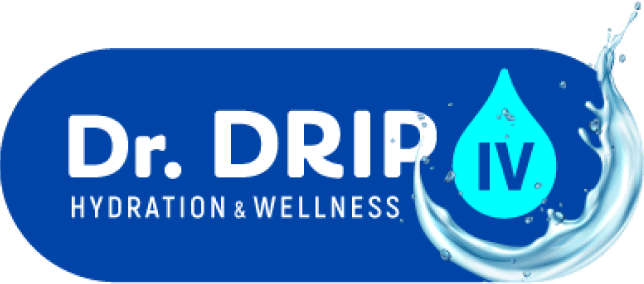
Depression: A Functional Medicine Approach

Posted on October 14th, 2022
Depression
Prior to the COVID-19 pandemic, mental health disorders were considered one of the leading causes of health-related burden worldwide. Research from the World Health Organization estimates that during the first year of the pandemic, the prevalence of two common mental health disorders, anxiety and depression, increased 25% across global populations.1 Depression is most acutely seen in females and young adults (aged 18-34);2 however, the prevalence among children and adolescents has significantly increased in recent years.3
Depression is a multifactorial condition that may have several different antecedents and triggers unique to each individual, and as such, a singular focus on antidepressant medication therapy may not be the optimal approach. In fact, a major study published in 2018 found that only about a third of patients diagnosed with depression actually start treatment.4 Non-adherence to antidepressants is also common.5 A 2017 study found that 68% of the females surveyed did not follow their prescribed antidepressant therapy.5 Forgetfulness was the main reason for missing doses. Another study showed that antidepressant non-adherence is common among veterans, with ineffectiveness and avoidance of side effects frequently reported as reasons.6
For those who adhere to antidepressant therapies, treatment of the acute phase of major depressive disorder (MDD) leads to a greater number of adverse events in patients 65 and over, according to a 2019 systematic review.7 Antidepressants included in the study were selective serotonin reuptake inhibitors (SSRIs), serotonin norepinephrine reuptake inhibitors (SNRIs), bupropion, mirtazapine, trazodone, vilazodone, and vortioxetine. Specifically, the reports found that SSRIs and SNRIs led to a greater number of study withdrawals due to adverse events, and duloxetine increased the risk of falls.7
Many factors can impact the efficacy of given treatment, but with lower rates of patient engagement to medication therapy, it may not be as effective as standalone treatment. When the cycle of depression continues for your patients and they still do not find relief, the clinical encounter can seem as hopeless as the patient feels. How can you get to the root cause for an individual patient, and what adjunct therapeutic interventions might improve outcomes?
The Path Forward: Complementary Therapies
The functional medicine model emphasizes a multi-pronged approach to health and wellness, engaging patients in a therapeutic partnership that recognizes that the current conventional paradigm does not optimally address the needs of patients with depressive symptoms. In the following video, IFM educator Patrick Hanaway, MD, IFMCP, talks about how a clinician might unravel the root cause of depression by looking at several factors, including levels of vitamin D and other vitamins, amino acids, and minerals—as well as the gut microbiome.
Clearly, variable reports on the efficacy of antidepressants,8,9 combined with the high prevalence of depression,10-11 have left many clinicians challenged about how to help patients. According to one report, 42% of doctors had a hard time differentiating between unhappiness and clinical depression.12 What’s more, clinicians differ greatly in how they diagnose depression—from using checklists to using “gut sense.”13 Perhaps due to lack of time or the inherent difficulties of diagnosis, some clinicians are not inquiring much or at all about depression.14 But there is a wealth of medical research on the topic, and studies continue to point to the effectiveness of non-pharmacological therapies for depression.
For patients who have tried several different antidepressants to no avail, other therapeutic interventions such as diet may yield better results. Although epidemiological studies do not establish causality, some have suggested an association between diet and mental health.15 A 2019 study found that long-term adherence to a healthy diet may offer protection against recurrent depressive symptoms.16 Analyses were conducted on a sample of 4,949 men and women, and diet scores were calculated using data collected from food frequency questionnaires repeated over 11 years of exposure. Higher scores on the Alternative Healthy Eating Index-2010, Dietary Approaches to Stop Hypertension, and transformed Mediterranean diet were associated with a lower risk of recurrent depressive symptoms.16
Evidence suggests that dietary or supplemented intake of other nutrients, such as those listed below, can be protective against depression or reduce depressive symptoms:
- Vitamin K17
- Fatty acids18-20
- Zinc (postpartum depression)21
- Magnesium22,23
Exercise and movement are also not to be overlooked. Research suggests that physical activity alone can treat mild to moderate depression symptoms.24-26 A 2015 cross-sectional national data study found that higher physical activity levels were associated with fewer self-reported days of poor mental health.27 Another large cohort study found that regular leisure-time exercise is associated with reduced incidence of future depression; it was predicted that 12% of future cases of depression could have been prevented if all participants had engaged in at least one hour of physical activity each week.28 Accumulating evidence also suggests that tai chi and yoga can significantly regulate emotion and relieve the symptoms of depressive disorders.29,30
Depression is a common and complex mood disorder that can severely affect a patient’s quality of life and even their family dynamic. The source can be biological, psychological, and/or social, and in the functional medicine model, it is incumbent upon the clinician to unravel the root cause of depression in order to address it effectively. Functional medicine tools like the timeline, as well as other resources, can help the patient cope, manage, and navigate a path to recovery.
Source: IFM

